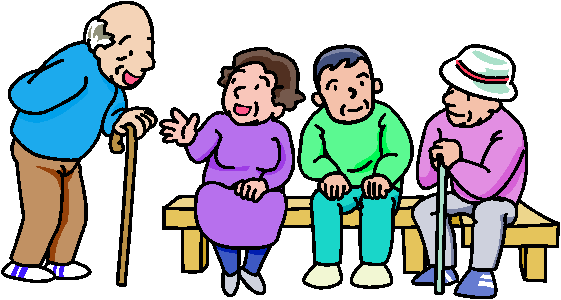
- Biological Theories
(1) Genetic Theory And Mutation (Somatic Mutatie Theory)
According to this theory, aging is genetically programmed for certain species. Aging occurs as a result of biochemical changes that are programmed by the molecules / DNA and every cell in time will be the mutation. As a typical example is a mutation of sex cells (a decrease in functional ability of cells).
(2) Use and Damage
Excess effort and stress causes the body's cells are tired (damaged).
(3) Reaction of Immune Self (Auto Immune Theory)
In the process of metabolism, one time produced a special substance. There are certain tissues that are not resistant to these substances so that the tissues of the body becomes weak and ill.
(4) The theory of "Imunology Slow Virus Theory"
Imune system to be effective with increasing age and entry of virus into the body can cause organ damage.
(5) Theory of Stress
Aging occurs due to loss of cells commonly used by the body. Tissue regeneration can not maintain a stable internal environment, the extra effort and stress causes the body cells tired unused.
(6) Free Radical Theory
Free radicals can be formed in the wild, unstable free radicals (groups of atoms) of oxygen resulting in oxidation of organic materials such as carbohydrates and proteins. These free radicals can cause the cells can not regenerate.
(7) Cross Chain Theory
The cells are old or obsolete, the chemical reaction causes a strong bond, particularly the collagen network. This causes a lack of elastic bonding, chaos and loss of function.
(8) Theory Courses
Organism's ability to set the number of cells that divide after the cells die. - Theory of Social Psycho
(1) Activity Theory- The provision will increase to a decrease in the number of activities directly. This theory states that the elderly are successful are those who are active and participate in many social activities.
- The optimum size (lifestyle) continued in the way of life of elderly.
- Maintaining the relationship between social systems and individuals to remain stable from middle age to elderly.
(2) Personality Continues (Continuity Theory) Basic personality or behavior does not change in elderly patients. This theory is a combination of the above theory. In this theory states that the changes that occur in the elderly person is strongly influenced by the type of personality they have.
(3) Disengagement Theory
This theory states that with increasing age, a person gradually began to break away from social life. This situation resulted in decreased elderly social interaction, both in quality and quantity so often lose terjaadi double (triple loss), namely:- Losing Role
- Barriers of Social Contacts
- Reduction Commitment Contacts
- Theory of Psychology
(1) Theory Development Task
Havigurst (1972) stated that the developmental tasks in old age include:
- Adjusting to decline in physical strength and health
- Adjusting to retirement and reduced income
- Adjusting to the death of a spouse
- Establish a relationship with people own age
- Establish a satisfactory physical living arrangements
- Adjusting to the social roles flexibly
In addition to the above developments tasks, there are specific developmental tasks that may arise as a result of demands:- Physical Maturity
- Expectations and cultural community
- The individual's personal values and aspirations




